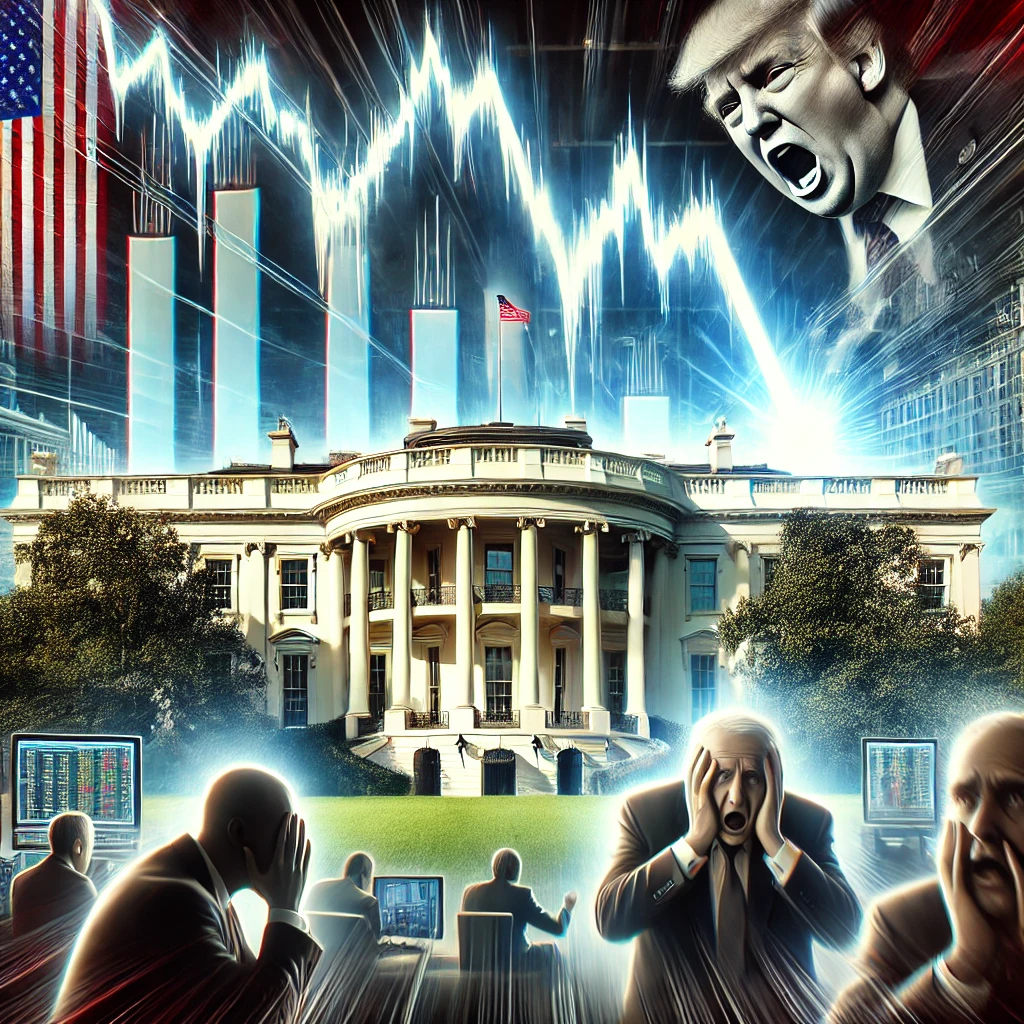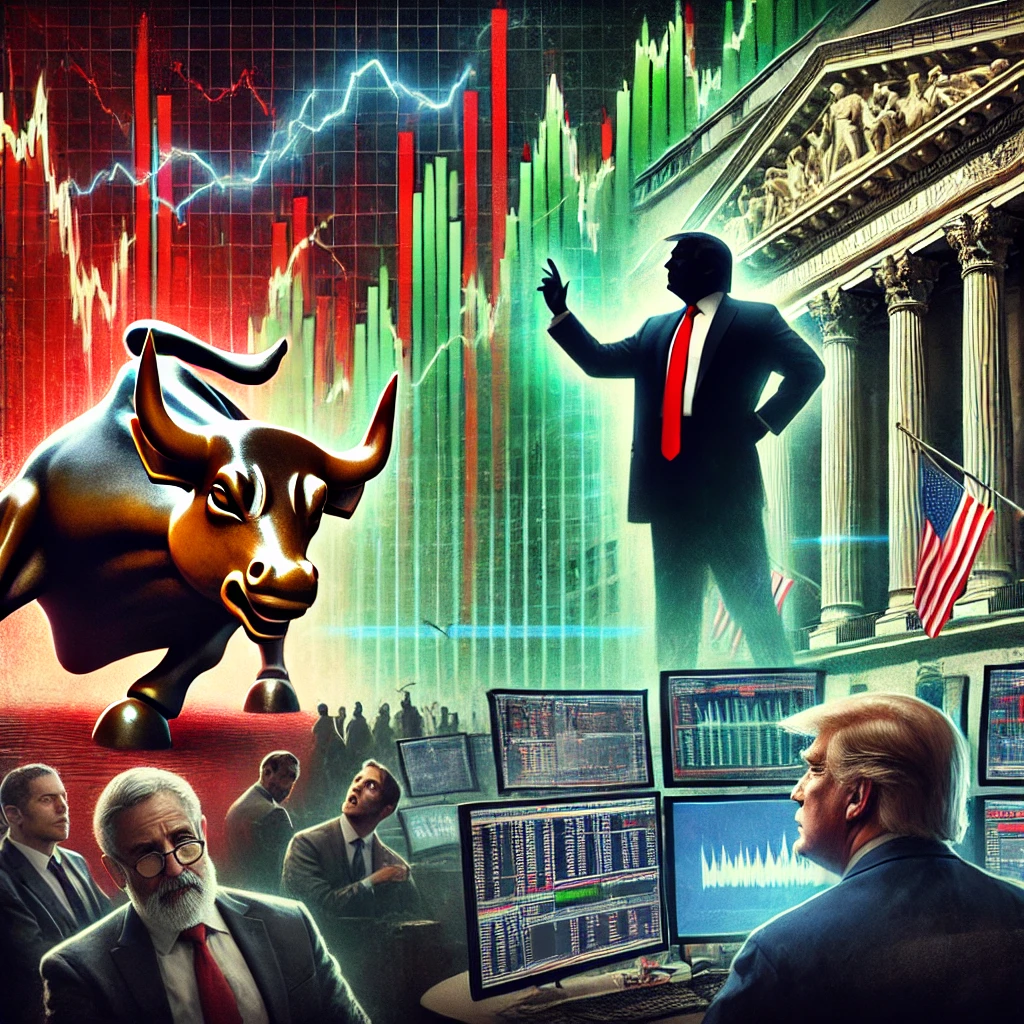Published Date: March 19, 2025 ✍️ Author: Global World Citizen News Team 🌍 Source: GlobalWorldCitizen.com
The Trump administration’s response to the stock market downturn has been notably indifferent. U.S. Treasury Secretary Scott Bessent recently described the decline as a “healthy correction,” dismissing concerns despite the S&P 500 falling 8% from its February peak. While the initial drop was largely triggered by President Donald Trump’s aggressive trade policies, the administration’s nonchalant attitude has exacerbated market jitters, fueling fears that its economic decisions could further destabilize investor confidence.
This laissez-faire approach could have serious consequences. The U.S. stock market has seen unprecedented growth in recent years, with American households and nonprofits holding $38 trillion in equities. The value of these assets has surged by 128% over the past six years, reaching levels nearly double the historical average. A prolonged downturn in stocks could trigger widespread economic and political repercussions.
A Dangerous Cycle: Markets, Consumer Confidence, and Spending
The primary risk lies in a negative feedback loop between the stock market and consumer spending. Data from the University of Michigan reveals that U.S. consumer confidence has plunged to its lowest level in nearly two and a half years. As stock prices tumble, household wealth shrinks, leading to reduced consumer spending—a phenomenon known as the wealth effect.
A 2019 study by Harvard and MIT economists estimated that for every dollar of lost wealth, consumer spending declines by three cents. However, Visa Inc. now suggests that the impact could be as high as 24 cents per dollar. If true, the recent $4.8 trillion decline in stock market value could translate into hundreds of billions of dollars in lost consumer spending this year alone.
Unlike real estate assets, which are less liquid and harder to track in real time, stock market fluctuations are visible instantly. With more than 25 million Americans now trading on platforms like Robinhood, the volatility directly influences consumer sentiment and spending behavior.
Risk-Takers on the Brink: Margin Debt and Market Exposure
Some investors, particularly those using leverage, are in an even more precarious position. Margin loans—credit borrowed to buy stocks—have surged, with investors at major brokerages borrowing billions to finance their trades. At the end of last year, customers at Interactive Brokers held $54 billion in margin debt, an increase of nearly 30% from the previous year.
Aggressive trading in derivatives and speculative positions has compounded risks. If the market continues to slide, these overleveraged investors could face margin calls, triggering forced liquidations that deepen the downturn.
Political Divisions in Financial Anxiety
The current market decline is affecting American investors differently based on their political affiliations. Wealth managers report that Democratic clients are far more anxious than their Republican counterparts. Financial planner David Zavarelli noted that, for the first time in his 18-year career, clients’ reactions to market fluctuations are strongly influenced by their voting history.
Since Trump’s election, consumer confidence has diverged sharply along partisan lines. Democrats have grown increasingly pessimistic about the economy, while Republicans remain optimistic.
Shifting Wealth, Shifting Political Stakes
The socioeconomic profile of political parties has also shifted. In past decades, stock market declines would disproportionately impact Republican-leaning voters, who tended to have higher incomes. Today, however, lower-income Americans—now more likely to support Trump—are less exposed to stock market fluctuations. Conversely, highly educated professionals, who have increasingly leaned Democratic, hold a significant share of equity wealth.
Currently, the top 20% of American earners own 87% of all stocks and mutual fund shares, while they hold just 57% of total property wealth. This means that a stock market crash now inflicts greater financial pain on Democrats than on Republicans.
The Economic Fallout: A Wealth-Driven Slowdown
Trump’s policies, including tariffs aimed at reviving American manufacturing, may find support among his working-class base, who see these measures as a necessary sacrifice. However, alienating wealthier Americans could have broader economic repercussions.
Since 2019, consumption by the wealthiest 20% of Americans has surged by over 50%, compared to just 20% growth for the rest of the population. In fact, the richest fifth of households have driven almost all recent growth in consumer spending. If affluent investors continue seeing red in their portfolios, their reduced spending could slow economic growth—hurting Republicans and Democrats alike.
The Big Question: Will Trump’s Strategy Backfire?
For now, the Trump administration appears unconcerned about market fluctuations. But history suggests that prolonged downturns eventually force political leaders to act. If the stock market decline continues and spending contracts, even Trump’s most loyal supporters may begin to feel the economic pinch.
Whether the administration changes course remains to be seen. What is clear, however, is that ignoring the stock market’s warning signs is a dangerous gamble—one that could have far-reaching consequences for both the U.S. economy and the 2028 election landscape.




